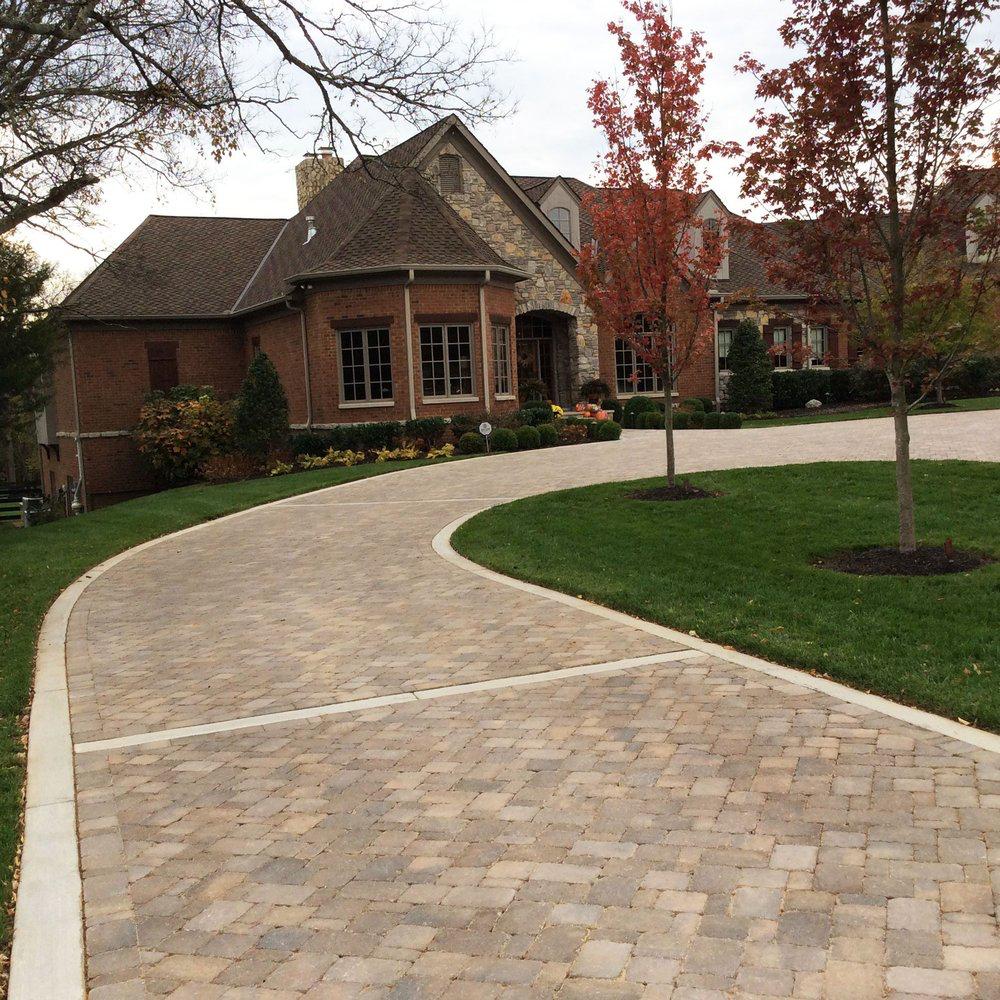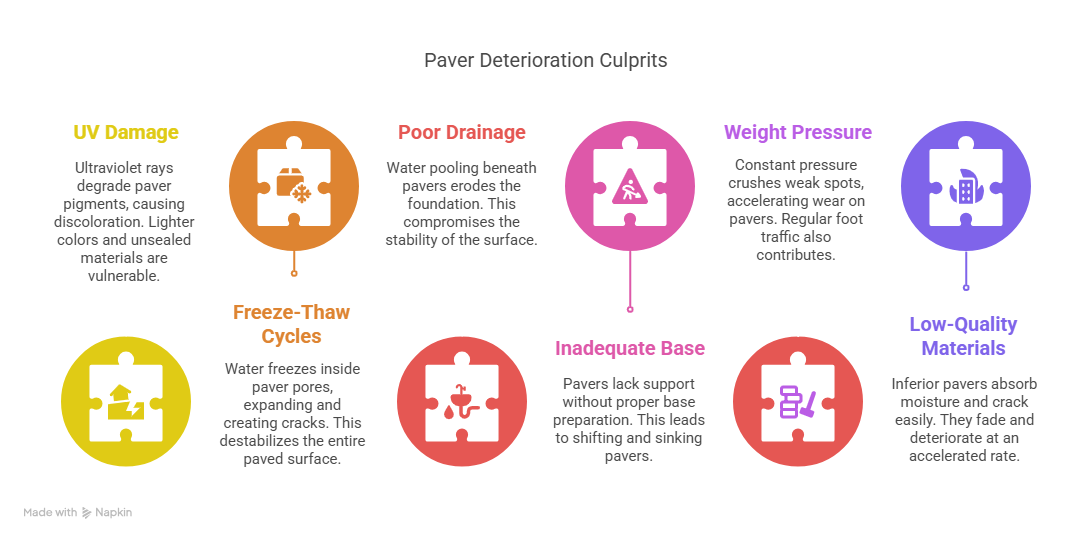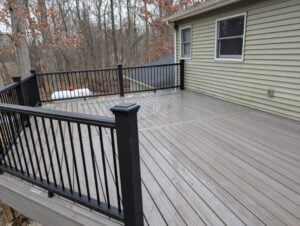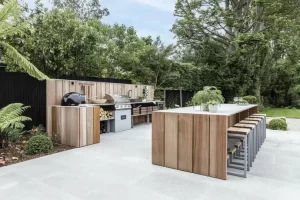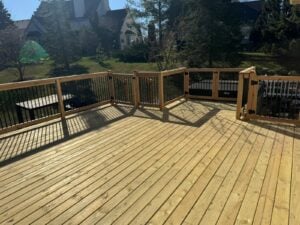Why Your Beautiful Pavers Are Losing Their Charm?
Ever wonder why your once-beautiful patio pavers lost their charm over the years? Effective paver maintenance is the missing piece in preserving your outdoor investment.
Your driveway creates the first impression before anyone steps foot in your home. With damaged pavers, your curb appeal significantly diminishes—and those cracks and uneven surfaces aren’t just unsightly, they’re serious tripping hazards.
What sets distinguished properties apart from the rest?
The answer is simple: Well-maintained pavers that retain their beauty year after year.
Paver maintenance might sound intimidating, but it mostly involves simple, manageable steps. In this comprehensive guide, we’ll show you exactly how to prevent fading pavers and keep them in excellent condition throughout all seasons.
Understanding Why Pavers Fade and Crack: The Root Causes
Even high-quality pavers deteriorate over time without proper maintenance. Daily wear, seasonal weather changes, and shifting soil gradually damage your driveway, making regular paver maintenance essential for longevity.
The 6 Main Culprits Behind Paver Deterioration:
- UV Damage: Ultraviolet rays break down pigments in your pavers, causing fading and discoloration. This effect is particularly visible in lighter colors and poorly sealed materials.
- Freeze-Thaw Cycles: Water penetrates tiny pores in pavers and expands when frozen, creating cracks or lifting the pavers from their base, destabilizing your entire surface.
- Poor Drainage: Without proper drainage, water pools beneath pavers, gradually eroding the foundation and compromising stability.
- Inadequate Base Preparation: When the base isn’t properly prepared, pavers lack solid support. This leads to shifting, sinking, and makes them vulnerable to damage without consistent paver maintenance.
- Weight Pressure: Constant pressure from vehicles crushes weak spots in pavers, accelerating wear. Even regular foot traffic contributes to gradual deterioration.
- Low-Quality Materials: Inferior pavers absorb excess moisture and crack during freeze-thaw cycles. They fade quickly and deteriorate faster, which is why we frequently see fading pavers and concrete pavers cracking prematurely.
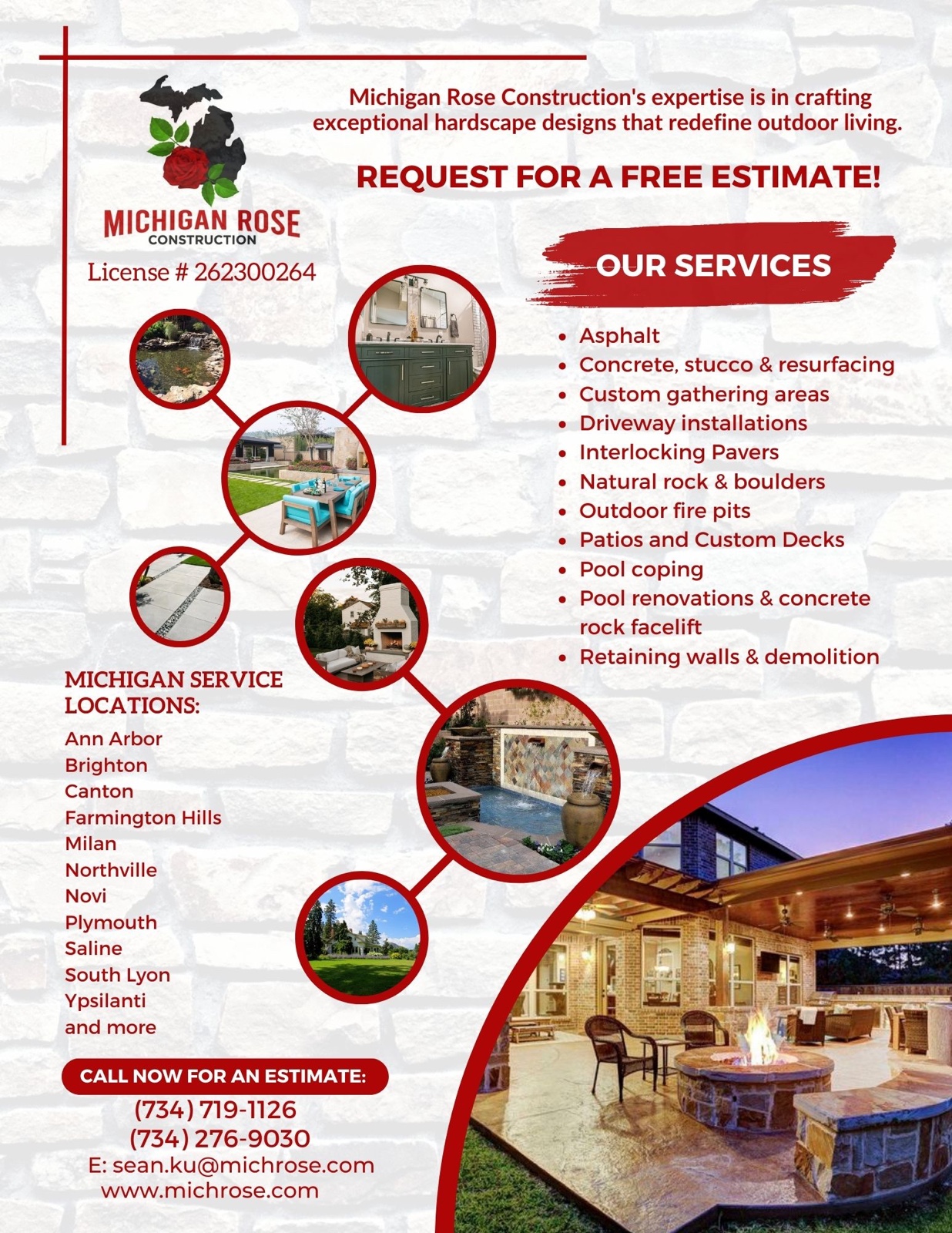
Choose Smartly & Maximize Your Investment
Not every paver type suits your specific needs, and installation quality matters just as much as material selection. Making informed choices today minimizes expensive repairs tomorrow through effective paver maintenance.
Popular Driveway Paver Materials Compared:
Concrete Pavers
- Advantages: Budget-friendly option with various color choices
- Disadvantages: More susceptible to cracking and fading without proper maintenance
- Maintenance Level: Moderate to high
Contact Our Concrete Paver Experts Today For Professional Installation Advice
Get personalized recommendations and avoid costly installation mistakes
Concrete Pavers
- Advantages: Classic aesthetic appeal with substantial character and durability
- Disadvantages: Can chip and shift without proper foundation installation
- Maintenance Level: Moderate
- Regular paver maintenance helps prevent most common issues.
Natural Stone Pavers
- Advantages: Superior longevity with minimal fading, creating bold, distinctive driveways
- Disadvantages: Higher initial investment requiring expert installation
- Maintenance Level: Low to moderate
Color Retention Properties By Material
- Concrete Pavers: Initially vibrant (especially lighter shades) but prone to becoming faded pavers without high-quality sealant application.
- Brick Pavers: Feature baked-in pigments that maintain rich, consistent coloration despite weather exposure.
- Natural Stone Pavers: The champion of color retention, maintaining their natural hues through seasons with minimal paver maintenance required—ideal for sun-exposed driveways.
Professional Installation: The Foundation of Paver Longevity
Proper base preparation fundamentally determines how well your pavers withstand time. Here’s the correct installation process:
- Thorough Excavation: Remove all loose or soft topsoil to create a firm foundation, preventing future sinking or shifting.
- Complete Compaction: Thoroughly compact gravel or road base layers to provide stable support for your pavers.
- Proper Bedding: Apply an even sand layer for leveling, ensuring pavers remain stable and evenly placed.
- Secure Edge Restraints: Install quality edge restraints around the perimeter to prevent lateral movement over time.
- Strategic Drainage Planning: Implement effective drainage systems that direct water away from pavers, preventing moisture damage that leads to cracking.
Slope & Grading: Critical Elements in Paver Protection
A properly calculated slope and grading system actively directs water away from your pavers, significantly extending their lifespan. Without adequate slope, water pools on and beneath the surface, potentially ruining your investment from within—problems that regular paver maintenance helps prevent.
Professional Recommendation:
- Aim for a slope of approximately 1 inch for every 4 feet to ensure effective water runoff
- Grade the surface so the driveway slopes slightly away from structures like homes and garages
- When uncertain about proper grading, consult experts at MichRose Construction for professional assessment
Need expert help?
Michigan Rose Construction specializes in weatherproofing outdoor kitchens with materials that balance both function and style for Michigan's variable climate.
Sealing Your Pavers: The Ultimate Protection Strategy
A quality sealant provides essential defense against environmental damage. Prevent deterioration, reduce maintenance costs, and significantly extend your paver surface’s lifespan through proper sealing.
Benefits of Sealing Your Pavers
Applied sealant creates a protective barrier that:
- Shields against harmful UV ray damage
- Prevents moisture penetration
- Resists staining from environmental elements
- Maintains fresh appearance while extending functional life
Choosing the Right Sealer for Your Pavers
1. Penetrating Sealers
- How They Work: Absorb into the paver surface to form an internal protective barrier
- Appearance: Maintains natural look without altering surface appearance
- Best For: Natural stone or highly porous pavers requiring invisible protection
2. Topical Sealers
- How They Work: Create a protective layer on the paver surface
- Appearance: Provides glossy finish that enhances color
- Best For: Decorative pavers where enhanced color is desired, though regular paver maintenance is required
Professional Application Tips
- Thoroughly clean and completely dry pavers before applying sealant
- Seal during spring or early fall for optimal application conditions
- Apply sealant evenly using a roller or sprayer
- Cover all paver surfaces and joints completely
- Begin in one corner and work systematically across the surface to prevent puddles or streaks
- Allow proper drying time according to manufacturer specifications
Resealing Frequency Guidelines
- Standard Recommendation: Every 2-3 years under normal conditions
- High-Traffic Areas: More frequent resealing may be necessary
- Maintenance Between Sealings: Regular cleaning with light pressure washing prevents dirt buildup and maximizes sealant effectiveness.
Following these guidelines prevents cracking and fading by reducing water absorption and providing UV protection over time.
Want to enhance your deck with a custom pergola?
Schedule a design consultation with our Michigan Deck and Pergola Specialists!
Regular Cleaning: Simple Yet Essential Maintenance
Would you let indoor floors accumulate months of dirt? Your outdoor pavers deserve the same attention. Regular cleaning prevents gradual deterioration and maintains their appearance.
Neglected cleaning leads to buildup that causes staining, mold growth, and surface erosion. Learning how to maintain pavers through consistent cleaning prevents these issues entirely.
Effective Cleaning Protocol:
- Clear surface debris using a push broom or leaf blower
- Rinse remaining dirt and jointing sand between pavers using a garden hose at moderate pressure
- For deeper cleaning, utilize a power washer on low setting to remove embedded grime and algae without damaging paver surfaces
Gentle Cleaning Solutions
- Mix warm water with mild dish detergent instead of harsh chemical cleaners
- Avoid acid-based solutions that damage paver surfaces
- For stubborn stains, allow cleaner to sit briefly, scrub gently with soft brush, and rinse thoroughly
Weed & Moss Prevention: Protecting Paver Integrity
One of the most common paver maintenance challenges involves preventing weeds and moss from infiltrating joints between pavers.
When left unchecked, weed roots develop within joints, causing pavers to shift or lift over time. Similarly, moss traps moisture that breaks down both surface texture and protective sealants.
Effective Prevention Techniques:
- Manually remove visible weeds and clean affected areas with targeted pressure washing
- Apply organic herbicides for environmentally friendly weed control
- Restabilize pavers by applying fresh paver joint sand in affected areas
- Prevent regrowth using pre-emergent herbicides as a preventative measure
Also Planning a basement remodel? Start with a solid foundation inspection
Don't let limited space limit your dreams. At Michigan Rose Construction, we specialize in turning basements into stunning, functional retreats that feel twice their size. Our expert team knows every inch counts, and we're masters at maximizing small spaces with smart design solutions that work perfectly for Michigan homes.
Request free consultationLearn More About Basement Remodel for Limited SpaceSmall Cracks: Address Minor Issues Before They Escalate
Even minor cracks in pavers can develop into expensive repairs when ignored. Small cracks allow moisture penetration that deteriorates the base or shifts surrounding pavers. In freeze-thaw regions, these cracks expand rapidly due to pedestrian traffic, plant intrusion, or weather exposure.
Solution: Use polymeric sand swept into gaps to create tight seals that secure paver positions.
For issues beyond surface-level damage, seek professional assistance from Michigan Rose Construction, as deeper structural problems require expert repair beyond typical DIY paver maintenance capabilities.
Our Michigan-Focused Expertise
- 15+ years of specialized experience with Michigan homes and Businesses.
- Deep understanding of local building codes and climate requirements
- Award-winning design-build services
- Comprehensive project management
- Transparent pricing and detailed quotes
- Industry-leading warranty coverage
Protect Your Pavers, Protect Your Home
Maintaining your pavers doesn’t require complicated procedures. With regular cleaning, appropriate sealant application, and professional installation, your paver surfaces can maintain their beauty and functionality for decades. Understanding how to maintain pavers properly is your best defense against fading pavers and concrete pavers cracking.
Contact us today:
License #: 26230264
Issued by: LARA
License Type: Residential Builder Co. – Fully licensed, bonded, and insured
Proudly serving Ann Arbor, Michigan, and surrounding communities with premium basement remodeling services since 2010. Our service area includes all of Friendly Neighborhoods in Michigan state.
Note: All cost ranges are estimates and may vary based on specific project requirements, location, and market conditions. Contact MichRose Construction for a detailed quote for your specific needs.
Michigan Rose Construction serves homeowners across Metro Detroit, Ann Arbor, Grand Rapids, Traverse City, and throughout Michigan with expert deck construction and maintenance services tailored to our unique climate challenges.
Key Takeaways:
- Prevention is cheaper than repair: Regular maintenance costs significantly less than replacing damaged pavers
- Sealing is crucial: Reseal pavers every 2-3 years to prevent UV damage and water penetration
- Choose quality materials: Higher-quality pavers require less maintenance and last longer
- Proper installation matters: Professional grading and base preparation prevent most common paver problems
- Address small issues immediately: Minor cracks and weeds can quickly escalate into major structural problems
- Regular cleaning preserves appearance: Simple cleaning routines maintain your pavers’ original beauty
- Different materials require different care: Understand the specific maintenance needs of your paver type
We do not share any client data with third parties. Your personal information is kept confidential and is not disclosed to any outside organizations, except as required by law or with your explicit consent.
FREQUENTLY ASKED QUESTIONS:
Most experts recommend resealing pavers every 2-3 years under normal conditions. However, high-traffic areas or pavers exposed to harsh weather conditions may need more frequent sealing, possibly annually. Check for water absorption as an indicator—if water soaks in rather than beading on the surface, it’s time to reseal.
Yes, but with caution. Use a pressure washer on a low setting (under 1500 PSI) to avoid damaging the paver surface or dislodging joint sand. Keep the nozzle at least 12 inches from the surface and use a fan tip rather than a concentrated stream. For delicate or older pavers, gentler cleaning methods are recommended.
Concrete pavers typically crack due to inadequate base preparation, poor drainage, freeze-thaw cycles, or excessive weight. The most common cause is water penetration followed by freezing temperatures, which expands the moisture inside the paver. Regular sealing and proper installation with adequate drainage significantly reduce cracking risks.
For fresh oil stains, immediately apply cat litter or sawdust to absorb excess oil. For set-in stains, use a specialized paver degreaser or make a paste with baking soda and water. Apply the paste, let it sit for 30 minutes, then scrub with a stiff brush and rinse thoroughly. Stubborn stains may require multiple treatments or professional cleaning.
Pavers typically sink due to inadequate base preparation, poor drainage, soil erosion, or heavy traffic. The underlying soil may settle unevenly, especially if proper compaction wasn’t done during installation. Fortunately, individual sunken pavers can often be lifted, and additional base material added underneath to restore a level surface.
Yes, polymeric sand offers significant advantages over regular sand. It contains polymers that harden when exposed to water, creating a more stable, semi-solid joint that resists weed growth, insect infestation, and erosion. While more expensive initially, polymeric sand requires less frequent replacement and provides better long-term performance.
The most effective weed prevention strategy combines several approaches: install proper weed barrier fabric during installation, use polymeric sand in joints, apply pre-emergent herbicide seasonally, and seal your pavers. Regular maintenance including targeted weed killer application and prompt removal of any weeds that do appear will keep your paver joints weed-free.
